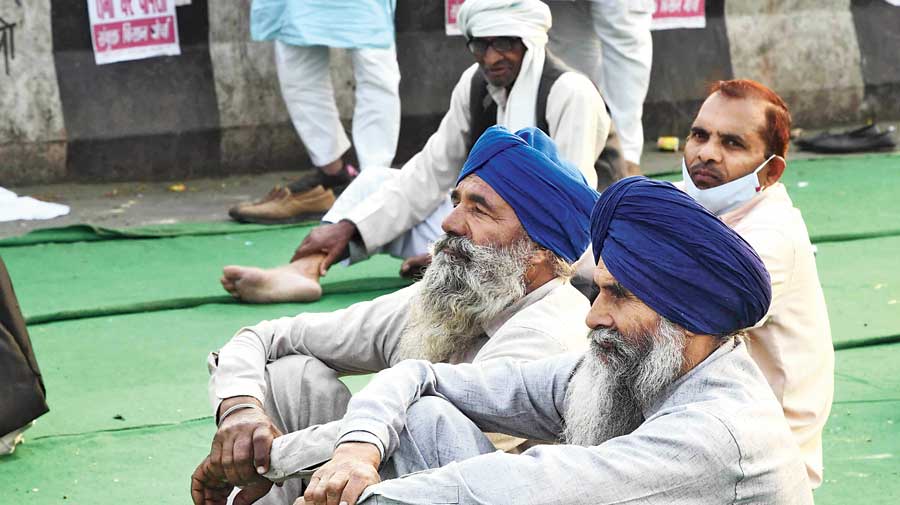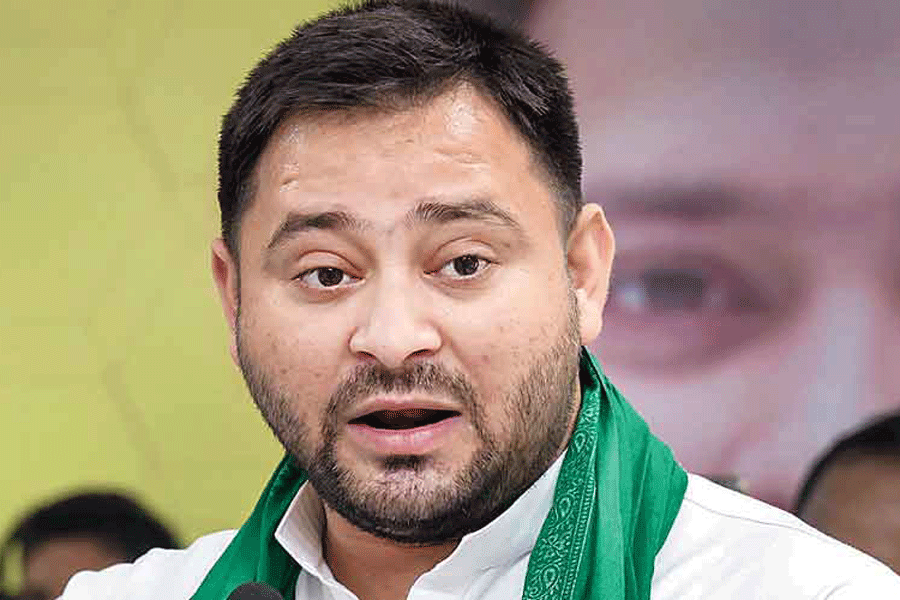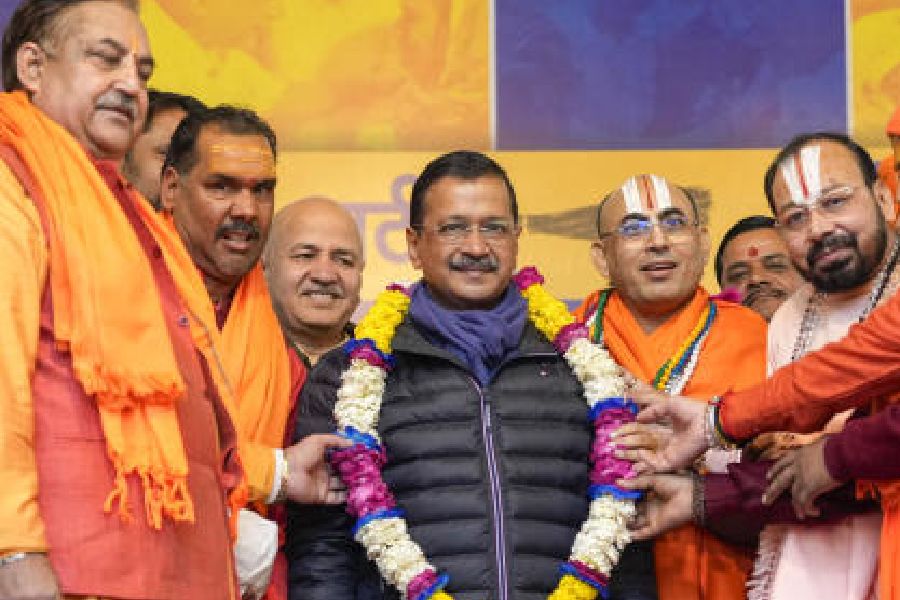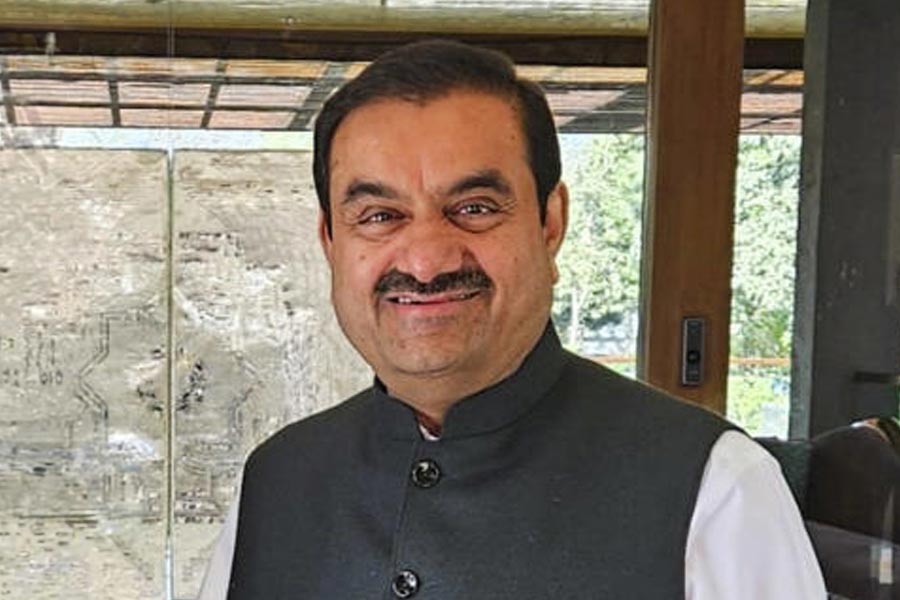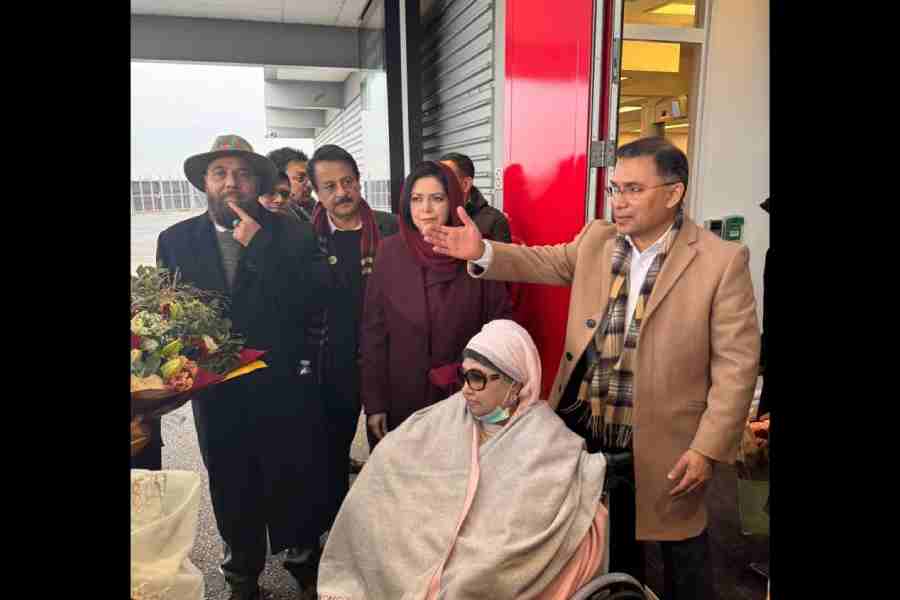Prime Minister Narendra Modi on Wednesday extolled the corporate world in a Lok Sabha speech, took exception to the protesting farmers “abusing” the “private sector”, and again used the term “andolan jeevi” to disparage a segment of the protesters.
The farmers, who fear the contentious laws would promote their corporate exploitation, have criticised not the entire private sector but “Adani and Ambani”, seen as the Prime Minister’s “crony capitalists” by critics and political opponents.
Modi, however, used the sweeping expression “private sector” as he replied to the motion of thanks over the President’s address in the Lok Sabha.
“To use improper words against the private sector may have got votes for a few people in the past but those times are gone,” he said. “The culture of abusing the private sector is not acceptable any longer.”
Modi then appeared to be implying, without explanation, that attacking the private sector amounted to “insulting our youths”. “We cannot keep insulting our youths like this,” he said, before going on to laud the private sector.
“The public sector is essential but the role of the private sector is also vital. If India is able to serve humanity it’s also due to the role of the private sector.... Wealth creators are important. If they don’t create wealth, how will it get distributed among the poor, provide jobs?”
The Prime Minister argued that the running of every sector could not be left to “babus” — a somewhat condescending reference to officialdom, from petty clerk to bureaucrat.
Walkouts
Modi accused his political rivals of tarnishing the farmers’ “pavitra (pure)” agitation and took a dig at the Congress, saying it was “divided and confused”.
He said the party’s elders in the Rajya Sabha had listened intently to his speech on Monday (when too he had defended the new farm laws). “This (Lok Sabha members) seems to be a separate wing of the Congress party,” he said.
Congress and Trinamul members protested uproariously for some time during Modi’s speech before the two parties walked out of the House separately.
Modi’s praise of the private sector and targeting of “andolan jeevis” came sometime after this. He spoke for more than an hour and a half and ended his speech with an appeal to the farmers to come for talks.
However, the farmers have already attended 11 rounds of talks despite repeatedly saying the government’s adamant attitude was rendering discussions fruitless. The government has sent no invite to the farm union leaders for talks in February so far.
Modi acknowledged that in a big and diverse country like India, any law was bound to raise objections and might not turn out to be beneficial for all. He expressed readiness to talk and make amendments but insisted the laws were good, implying once again his lack of sympathy for the farmers’ demand for the acts’ repeal.
‘Naxals, terrorists’
“I consider the farmers’ agitation to be holy. But when andolan jeevis hijack holy agitations and showcase the photos of Naxals, terrorists and those in jail for harming the nation, is that not harming the farmers’ cause?” Modi said.
“We need to differentiate between andolankaris and andolan jeevis.”
Some human rights organisations that had joined the farmers’ protests had held up images of Father Stan Swamy and other rights activists and writers arrested in the Bhima Koregaon case and accused of Maoist links.
However, the trial has not begun let alone the verdict being delivered, which means none of them has been proved to be a terrorist or convicted of “harming the nation”.
Modi referred to the violent protests at toll plazas and the destruction of telecom towers, mostly in Punjab, blaming it on “andolan jeevis”.
He said the new farm laws were meant to help small farmers but the Congress had raised an outcry to hide the truth about them.The Prime Minister insisted that the old system of “mandis and APMCs” and the minimum support price (MSP) would continue, while the farmers would have the added option of selling their produce in the open market.
The farmers have, however, been asking that if this is so, why is the government not turning the MSP into a legal guarantee as they have demanded?
In answer to the farmers’ query why the laws had been thrust on them when they hadn’t sought any, Modi said: “The argument has been made, ‘Why did you provide when we didn’t ask?’ Is this a feudal system that people would beg and then the government would give?”
“Nobody had demanded a law against child marriage and dowry but (such a law) was made for the nation’s progress. Nobody had asked for a law on the triple talaq but it was done for a progressive society.”
Modi justified the need to involve the private sector in the agriculture business, saying the government lacked enough funds to invest in infrastructure-building in the sector.
Talking to reporters later, Akali Dal member Sukhbir Singh Badal flagged how Modi had as Gujarat chief minister favoured a legally guaranteed MSP.
“There is a massive difference between what Narendra Modi said as Gujarat chief minister and (what he is now saying) as Prime Minister,” Badal said.
“During the term of the UPA government, Modiji had headed a meeting of chief ministers where he demanded the MSP to be made a legal guarantee. He has retracted that stance now.”

